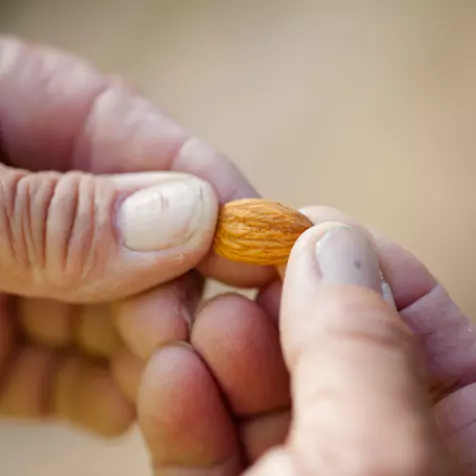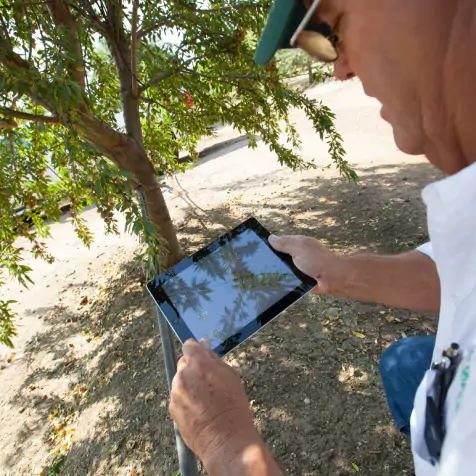Sustainability in almonds
ofi's goals include a commitment to reach and exceed the industry standard by 2030 and reduce our scope 1 and 2 GHG emissions in line with the 1.5 degrees pathway.
Sustainability challenges facing the almond supply chain
Almonds can only grow in a handful of places with ideal climate and growing conditions - including Australia and California, where ofi's own orchards are located. But rising global temperatures are making these growing regions increasingly prone to drought. ofi recognizes the importance of using water as efficiently as possible so as to not waste a drop. We strive to produce more while using less, by implementing or investing in sustainable practices such as state-of-the-art irrigation systems and creating pollinator habitats with bee-friendly plants. As partners of the Almond Boards of both Australia and California, we actively seek to participate in industry leading sustainability initiatives and best practices.
Towards the Future - 2030 Goals
Join Us on our Almond Trail
If what you've read inspries you to be the change with us, we've identified three ways to create greater impact together:
- As a strategic or implementation partner, by providing personal time, technical expertise or resources for new and exciting initiatives on the ground.
- Through customized programs tailored to your sustainability ambitions using AtSource Plus, ofi's sustainability insights platform to monitor and drive change.
- By directly contributing to existing, new initiatives, or a one-off payment.
Nut Trails Impact Report 2023
Welcome to ofi’s 2023 Nut Trails impact report, charting our journey to more sustainable nut supply chains and the choices we’re making to help farmers prosper, protect the rights of children and workers, and promote regenerative agriculture. These choices are guided by and contribute to ofi’s overarching sustainability strategy Choices for Change.
Discover the progress we’ve made over the last year against several of our 2030 goals outlined in the Almond Trail, Cashew Trail and Hazelnut Trail.
Almond Trail Impact Stories – Videos:
Water is conserved across all ofi almond orchards, resulting in local landscapes and ecosystems being better protected from the negative effects of inefficient water use.
Carbon emissions are reduced by implementing climate-smart practices and improving resource-use efficiency.
We provide more nutrients, carbon, beneficial insects and organic matter into the ecosystem, versus what we take during production and practice sustainable, cost-effective farming practices.
The communities in which we operate are equipped with skills to thrive economically and are resilient and strong.
Copyright © 2025
Olam International Limited. All Rights Reserved. Co Reg No: 199504676H




